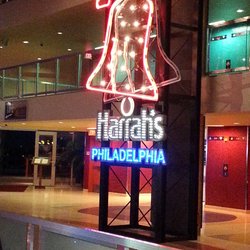The Lehigh Valley News Report noted that Pennsylvania’s land-based casino revenue has declined, prompting speculation that the nascent online gaming industry of New Jersey might be having an effect. According to the report, the Atlantic City online casinos and poker rooms are not the only possible alternative.
Pennsylvania has faced unseasonably bad weather this year, with heavy snow throughout much of the last month. Gamblers might be staying home to avoid bad roads and uncomfortable weather.
For the Pennsylvanian numbers to be impacted, the flow of New Jersey gamblers to Pennsylvania would have to be affected. Though it’s legal for New Jersey gamblers to play online at Atlantic City poker sites and casinos, it is still illegal for Pennsylvanians to do the same on those sites. The geolocation technology would sense the IP address of computers and the Wi-Fi connection of mobile devices, making it impossible for people inside Pennsylvania to gamble there.
No Consensus Has Formed on iGaming
Also, experts have not yet determined whether online gamblers are the same people who wager at the brick-and-mortar casinos. Evidence points both ways. Common sense might suggest that offline gamblers would enjoy online gambling, but that is not always the case. For instance, some might be older betters who might be technophobes, either distrusting random number generators or disliking virtual poker or blackjack. Others might prefer the bright lights and tempting sounds of a live casino, finding computer gaming at home to be unromantic. Still others might prefer the social aspect of gambling.
New Jersey’s statistics seem to indicate that the two demographics, the land-based and online gambling communities, might not overlap as much as you would think. A recent survey showed that 85% of the 248,000 people in New Jersey who have signed up for online accounts so far have not played in an Atlantic City casino in two years or more.
If those numbers are accurate, online and mobile gambling is not cannibalizing the land-based traffic, which was one great fear when the new laws were passed late last year in New Jersey. If land-based gaming is not adversely affected to a great degree by computer gaming, then the Pennsylvania casinos and racinos have little to fear.
Pennsylvania Gambling Establishments
Pennsylvania is home to 12 gaming facilities: 6 of them casinos and 6 of them horse tracks. The casinos are the Sands Casino Resort in Bethlehem, Rivers Casino in Pittsburgh, Lady Luck Casino Nemacolin in Farmington, Sugarhouse Casino in Philadelphia, Valley Forge Casino Resort in King of Prussia (a city), and Mount Airy Casino Resort in Mount Pocono.
Besides those six facilities, six racinos exist. A “racino” is a racetrack which offers casino style gaming, usually in the form of gaming machines. Because it’s part racetrack and part casino, it’s called a racino. At present, six racinos are found inside Pennsylvania: Mohegan Sun at Pocono Downs in Wilkes Barre, Parx Casino in Bensalem, The Meadows Racetrack and Casino in Washington, Harrah’s Philadelphia in Chester, Hollywood Casino at Penn National Race Course in Grantville, and Presque Isle Downs & Casino in Erie.
Pennsylvania Online Gambling
Besides the three states which currently offer legal online gambling–Nevada, New Jersey, and Delaware–ten other U.S. states are considering laws which would legalize gambling online. Nevada and Delaware have signed an interstate gaming compact, so they now share poker player lists. It could be a matter of time before Pennsylvania’s legislature considers legalizing online gaming in the state.
Often, new laws and initiatives in neighboring states feed into the passage of a gaming bill. The need to keep up with the Joneses requires leaders in a state to react to trends in other states. Proponents point out declining revenues, then suggest remedies to help increase those revenues.
For instance, lawmakers in Delaware are enacting laws to protect their racetracks from competition in nearby states. New Jersey’s laws were meant to make Atlantic City more competitive vis a vis Pennsylvania racinos and, more remotely, Las Vegas Strip casinos. Massachusetts just enacted a plan to keep gamblers inside the state, instead of 20 miles down the road at Rhode Island casinos.
If similar thought processes occur in Pennsylvania, its leaders might see the need to license, regulate, and tax online gambling. For the time being, political leaders plan to take a wait and see approach, hoping the decline in revenue is temporary and only the result of bad weather.

